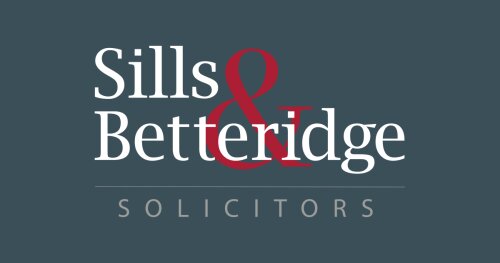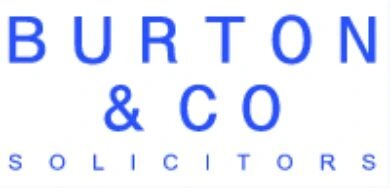Best Child Abuse Lawyers in Lincoln
Share your needs with us, get contacted by law firms.
Free. Takes 2 min.
Free Guide to Hiring a Family Lawyer
List of the best lawyers in Lincoln, United Kingdom
About Child Abuse Law in Lincoln, United Kingdom
Child abuse is a serious issue in Lincoln, United Kingdom, and is treated as a criminal and civil offense under UK law. Child abuse can include physical, emotional or psychological harm, sexual abuse, neglect, or exploitation of children under the age of 18. The law protects children from harm within family settings, educational institutions, and public spaces. In Lincoln, local authorities, schools, police, and healthcare professionals all have a legal duty to safeguard children and report any suspicions of abuse. The aim is to ensure the safety and welfare of every child in the community.
Why You May Need a Lawyer
There are several situations in which seeking legal advice on child abuse might be essential. If you are accused of child abuse, it is important to obtain legal representation immediately to protect your rights and ensure you receive a fair trial. Parents or guardians who suspect their child has been abused by someone else may need a lawyer to navigate reporting requirements, court orders, or child protection proceedings. Additionally, professionals such as teachers or caregivers may face allegations that require legal expertise to respond to investigations or disciplinary hearings. Families involved in custody disputes or care proceedings may also require legal help if child abuse is alleged or identified.
Local Laws Overview
In Lincoln, United Kingdom, child abuse laws are governed by both national and local statutes. The Children Act 1989 and Children Act 2004 set out the legal framework for safeguarding children. Any act of physical, sexual, or emotional abuse, or neglect, is a criminal offense. Local authorities have the power to investigate if a child's welfare is considered at risk and can apply for intervention orders to remove children from unsafe environments. The police work closely with social services and the NSPCC to investigate accusations, and family courts can impose child arrangement or protective orders. All professionals working with children are obligated to report abuse and cooperate with investigations.
Frequently Asked Questions
What are the signs of child abuse?
Signs can include unexplained injuries, fear of specific adults, drastic changes in behavior, sudden withdrawal, lack of personal hygiene, sexually inappropriate behavior for age, or untreated medical issues. Not all signs mean abuse, but they are causes for concern.
Who should I contact if I suspect a child is being abused in Lincoln?
You should contact Lincolnshire County Council's Children's Services, the police, or the NSPCC. If a child is in immediate danger, always dial 999.
What will happen if I report suspected child abuse?
Authorities will carry out an assessment or investigation. They may speak with the child, family, and other relevant individuals. Social services or police will act to protect the child if necessary and may begin legal proceedings.
Can I remain anonymous when reporting child abuse?
Yes, anonymous reports are accepted by most agencies such as the NSPCC and the police, though providing your details can help with follow-up if needed.
What are the potential consequences for someone found guilty of child abuse?
Consequences can include police cautions, fines, being placed on the Sex Offenders Register, imprisonment, loss of custody rights, or disqualification from working with children. The exact penalty depends on the severity and nature of the abuse.
How are children protected during investigations?
Children may be interviewed by specially trained professionals and may be removed from harmful environments if necessary. Their welfare is the primary consideration in all proceedings.
Do allegations of child abuse affect family court decisions?
Yes, any allegations or evidence of abuse are taken extremely seriously in family courts and will influence custody, visitation, and protective orders to safeguard the child.
Are there time limits on reporting historic child abuse in the UK?
There are generally no time limits on reporting child abuse, even if it happened many years ago. Police and authorities will still investigate historical allegations.
Can a child give evidence in court?
Yes, children can give evidence in court, but it is usually done in a way that protects their welfare, such as by video link or behind screens, and with support from specialist professionals.
What legal support is available for victims of child abuse?
Victims may be eligible for legal aid, support from social services, and specialist advice from charities. Solicitors with expertise in child protection can help victims and their families navigate criminal or civil proceedings.
Additional Resources
- Lincolnshire County Council Children's Services: Local authority safeguarding children team. - National Society for the Prevention of Cruelty to Children (NSPCC): Provides advice, support, and a helpline for concerns about child abuse. - Childline: Confidential support for children and young people. - Lincolnshire Police: For reporting and investigating criminal abuse. - Citizens Advice Lincoln: Legal advice and support for families. - Law Society: Directory of solicitors experienced in child protection.
Next Steps
If you are seeking legal assistance regarding child abuse in Lincoln, start by identifying the nature of your concern or situation. Gather any relevant evidence or notes, and seek advice from a specialist solicitor with experience in child protection or family law. Contact local services such as the Lincolnshire Children's Services or the police if a child is at risk. Reach out to support organizations for guidance and emotional support. Do not hesitate to act if you suspect abuse - the safety and welfare of the child is always the top priority.
Lawzana helps you find the best lawyers and law firms in Lincoln through a curated and pre-screened list of qualified legal professionals. Our platform offers rankings and detailed profiles of attorneys and law firms, allowing you to compare based on practice areas, including Child Abuse, experience, and client feedback.
Each profile includes a description of the firm's areas of practice, client reviews, team members and partners, year of establishment, spoken languages, office locations, contact information, social media presence, and any published articles or resources. Most firms on our platform speak English and are experienced in both local and international legal matters.
Get a quote from top-rated law firms in Lincoln, United Kingdom — quickly, securely, and without unnecessary hassle.
Disclaimer:
The information provided on this page is for general informational purposes only and does not constitute legal advice. While we strive to ensure the accuracy and relevance of the content, legal information may change over time, and interpretations of the law can vary. You should always consult with a qualified legal professional for advice specific to your situation.
We disclaim all liability for actions taken or not taken based on the content of this page. If you believe any information is incorrect or outdated, please contact us, and we will review and update it where appropriate.









